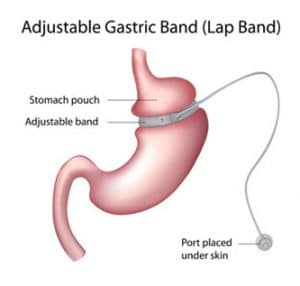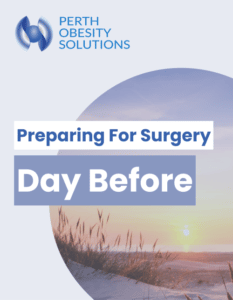Pain
You may feel some regular nagging pains in your abdomen. Most of these will be at the site of your incision. The incision is typically located a few inches below your ribs on the left side. You should continue to take pain medication as needed, and limit physical activity during this first week of recovery.
Diet
After Lap Band surgery, most people are advised to eat only liquid or soft foods for the first week. Meal replacement shakes will become your best friend during this period.
Get rid of anything you find tempting or hard to resist. If it’s not essential, don’t keep it in your kitchen. And if you don’t own a blender and bottle for mixing shakes, get one—it’ll make the diet much easier!
Keep drinking plenty of fluids. Chew your vitamins and take other supplements as directed by a medical professional. Check the colour of your urine frequently and monitor bowel movements.
Sleep
It may be difficult to sleep following your surgery, but it is important that you rest in order for the recovery process to go smoothly.
To remain comfortable while sleeping, you should sleep on your back or side with a supportive pillow; this will keep your spine aligned and reduce the chances that you’ll turn onto stomach during the night.
Exercising
To continue to have a healthy circulation, get at least 30 minutes of walking daily. Do not lift anything heavy and do not engage in strenuous activity.
Keep up your activity routine. As you are able to walk more, do so—but don’t exhaust yourself or push yourself too hard. Keep motivated and resist boredom at all costs!



